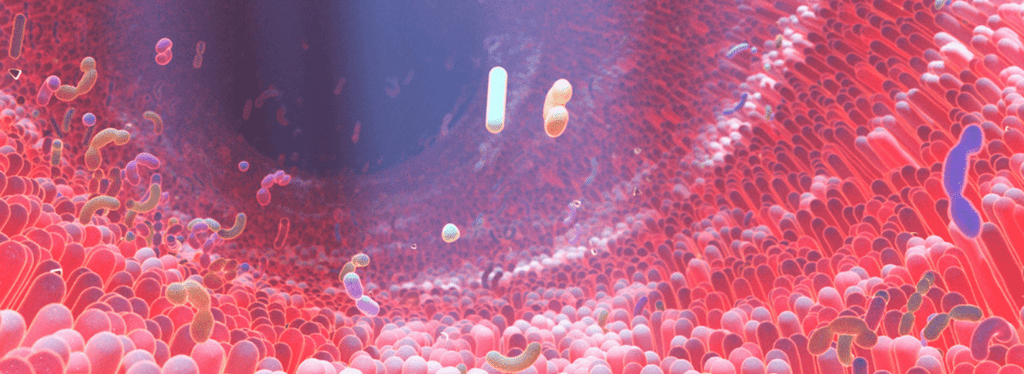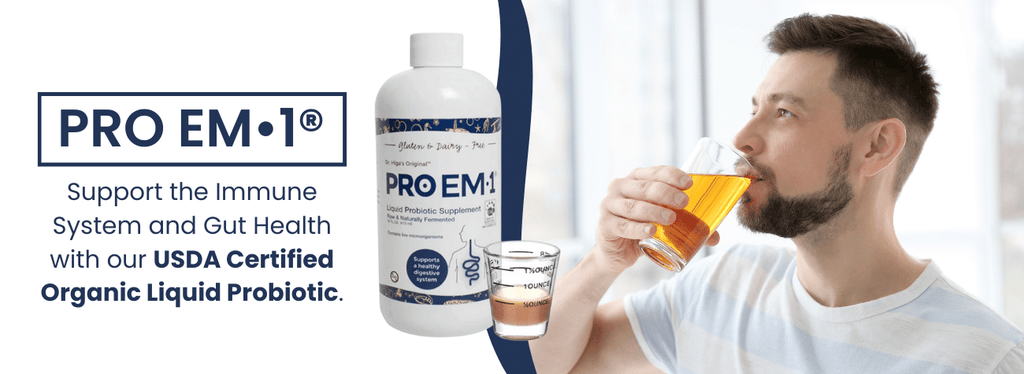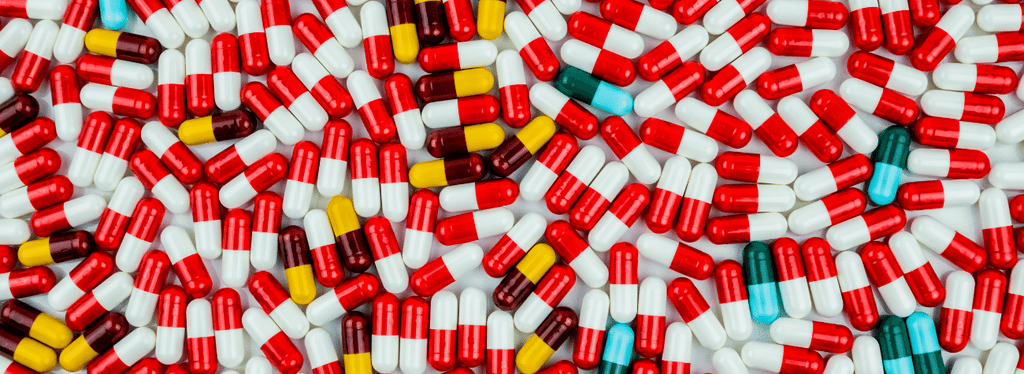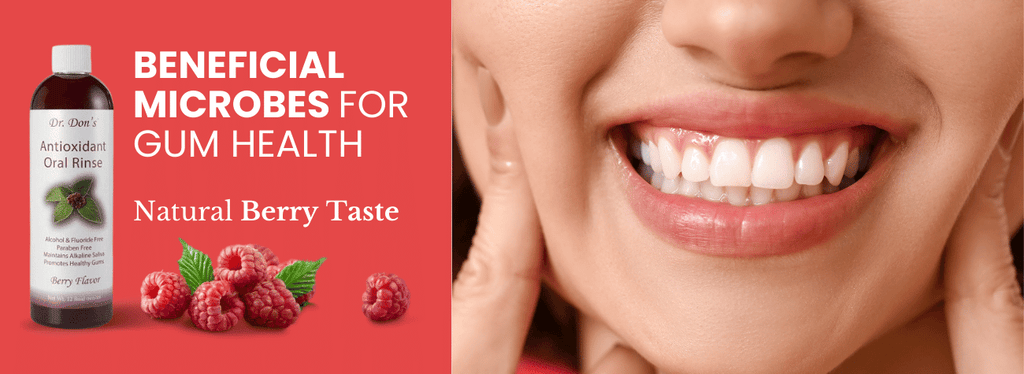
Nurturing Your Microbiome: Understanding Good vs Bad Bacteria
In the complex world of microbiology within our bodies, the distinction between beneficial and harmful bacteria is paramount. Understanding this balance can significantly impact our health and wellness journey.
In this detailed guide, we explore the differences between good and bad bacteria, their roles in our bodies, and actionable steps to foster the growth of beneficial bacteria while minimizing the presence of harmful ones.
Good vs Bad Bacteria
In the human body, particularly within the gut microbiome, bacteria are categorized as "good" or "bad" based on their effects on our health.
Good bacteria, often referred to as probiotics, play a crucial role in maintaining our health. They aid in digestion, support the immune system, and help in the production of vital nutrients like vitamins B and K. Good bacteria also protect against harmful microorganisms by competing for nutrition and attachment sites in the gut.
Conversely, bad bacteria are pathogenic organisms that can cause diseases and infections when they proliferate beyond control. These harmful bacteria can enter the body through contaminated food, water, or close contact with an infected individual. When the balance tilts in favor of bad bacteria, it can lead to digestive issues, infections, and other health problems.
The equilibrium between good and bad bacteria is essential for optimal health. Factors like diet, lifestyle, and antibiotic use can influence this balance. A diet rich in fiber, for example, can nourish good bacteria and help maintain a healthy gut microbiome, emphasizing the importance of lifestyle choices in managing the delicate balance between beneficial and harmful bacteria.

What Does Good Bacteria Do to Your Body?
Good bacteria play a vital role in the body's overall health and functioning. They assist in digesting food, absorbing nutrients, and synthesizing essential vitamins such as vitamin K and certain B vitamins.
Beyond the digestive system, good bacteria support the immune system by outcompeting harmful pathogens for resources and space, effectively preventing infections.
They also contribute to the maintenance of the intestinal barrier, protecting against toxins and not-so-beneficial microorganisms entering the bloodstream. Furthermore, evidence suggests that a healthy balance of gut bacteria is linked to improved mental health, reduced inflammation, and a lower risk of some chronic diseases.
In essence, these beneficial microbes are fundamental to not just digestive health, but to systemic well-being, demonstrating the interconnectedness of gut health with the overall health of the body.
How to Increase Good Bacteria in the Gut Naturally
To naturally increase good bacteria in the gut, incorporating a diverse, fiber-rich diet is key. Foods high in dietary fiber, such as fruits, vegetables, legumes, and whole grains, provide prebiotics, which serve as food for beneficial gut bacteria, promoting their growth.
Fermented foods like yogurt, kefir, sauerkraut, and kombucha are rich in probiotics, directly adding beneficial microbes to the gut flora. Additionally, reducing the intake of processed foods and sugars is important, as these can favor the growth of harmful bacteria over beneficial ones.
Staying hydrated, engaging in regular physical activity, and managing stress are also essential for maintaining a healthy gut microbiome. Lastly, minimizing unnecessary antibiotic use is crucial since antibiotics can disrupt the balance of gut bacteria, eliminating both harmful and beneficial microbes.

Foods with Good Bacteria
Certain foods are particularly beneficial for supporting good bacteria in the gut due to their composition and the presence of specific nutrients that foster a healthy microbiome.
Here's a detailed list:
Fermented Foods:
Yogurt: Contains live probiotics, such as Lactobacillus and Bifidobacterium, which can enhance the diversity of gut flora.
Kefir: A fermented milk drink rich in various probiotics, supporting gut health and immune function.
Sauerkraut: Fermented cabbage that provides live probiotics and fibers, promoting beneficial bacterial growth.
Kimchi: A Korean fermented vegetable dish, high in probiotics and antioxidants.
Prebiotic Foods:
Garlic: Acts as a prebiotic by feeding beneficial gut bacteria, promoting their growth; contains antimicrobial and antifungal properties.
Onions: Rich in inulin and flavonoids, they support the growth of good bacteria and improve immune function.
Bananas: Provide vitamins, minerals, and dietary fiber, particularly inulin, fostering a healthy gut environment.
Asparagus: High in inulin, it helps increase the populations of friendly bacteria.
Polyphenol-Rich Foods:
Berries: Rich in antioxidants and polyphenols, berries can enhance bacterial diversity by promoting the growth of beneficial bacteria.
Green Tea: Contains high levels of catechins, polyphenols that suppress harmful bacteria and improve the ratio of beneficial microbes.
Dark Chocolate: Cocoa contains flavanols and polyphenols that beneficial bacteria can ferment and utilize, improving gut health.
Whole Grains:
Barley and Oats: These grains contain beta-glucan, a type of fiber that is beneficial for gut bacteria, improving digestion and enhancing the immune system.
Nuts and Seeds:
Almonds: High in dietary fiber and polyphenols, almonds can increase beneficial gut bacteria levels.
Flaxseeds: Rich in fiber and omega-3 fatty acids, flaxseeds help promote the growth of beneficial gut microbes.
These foods contribute to a balanced and diverse microbiome by providing the necessary nutrients that good bacteria need to thrive, while also offering other health benefits like enhanced digestion, improved immunity, and reduced inflammation. Incorporating a variety of these foods into your diet can help maintain a healthy gut microbiome.

Probiotics to Support Good Bacteria
Using probiotics is an effective strategy to support and enhance the population of good bacteria in the gut. Probiotics are live microorganisms that, when administered in adequate amounts, confer a health benefit on the host.
Among various probiotic supplements, PRO EM-1 from TeraGanix stands out as a preferred option for those seeking to bolster their gut health naturally. PRO EM-1 is a liquid probiotic supplement that contains a blend of beneficial microbes, including species of Lactobacillus, yeast, and phototrophic bacteria.
These components work synergistically to improve digestion, enhance nutrient absorption, and support the immune system. The live microbes in PRO EM-1 actively contribute to balancing the gut microbiome, outcompeting harmful bacteria, and promoting the growth of beneficial bacteria.
Its liquid form allows for easy consumption and rapid absorption, making it a convenient and efficient way to incorporate probiotics into one’s daily health regimen.

What Causes Bad Bacteria in the Gut?
Several factors contribute to the proliferation of harmful bacteria in the gut, including poor dietary choices, stress, inadequate sleep, and exposure to environmental toxins. Consuming a diet high in processed foods, sugar, and unhealthy fats can disrupt the balance of the gut microbiota, paving the way for bad bacteria to flourish.
Do Probiotics Kill Bad Bacteria?
Bad bacteria in the gut can flourish due to several factors that disrupt the natural balance of the microbiome.
Poor diet, particularly one high in processed foods, sugars, and saturated fats, can encourage the growth of harmful bacteria at the expense of beneficial ones.
Excessive alcohol consumption also negatively impacts gut flora, promoting dysbiosis. Antibiotic use, while sometimes necessary, can indiscriminately kill bacteria in the gut, including the good bacteria, leading to an overgrowth of harmful microbes.
Chronic stress is another contributor that can alter gut bacteria composition and function, weakening the immune response. Furthermore, inadequate sleep and physical inactivity can further disturb the microbial balance.
Each of these factors can compromise the gut barrier function, increase inflammation, and create an environment conducive to the proliferation of pathogenic bacteria, undermining overall health.

Do Antibiotics Kill Good Bacteria?
Yes, antibiotics do kill good bacteria along with the harmful ones they are meant to target.
Antibiotics work by attacking the bacteria causing infections, but they are not able to distinguish between the pathogenic bacteria and the beneficial microbes that reside in the gut.
This broad-spectrum action can lead to a significant reduction in the population of good bacteria in the gastrointestinal tract. The depletion of beneficial bacteria can disrupt the gut microbiome's balance, a condition known as dysbiosis.
This imbalance can result in digestive issues, reduced immune function, and an increased risk of further infections. It's important to use antibiotics only when necessary and under medical supervision.
To mitigate the impact on good bacteria, healthcare professionals often recommend taking probiotics during or after antibiotic treatment to help restore the natural balance of the gut microbiome.
How to Replenish Good Bacteria After Antibiotics
To replenish good bacteria after antibiotic treatment, consider integrating probiotics and prebiotics into your diet following the advice above in this article.
Probiotics are live beneficial bacteria found in fermented foods like yogurt, kefir, sauerkraut, and kombucha. These can help repopulate the gut with healthy microbes.
Prebiotics, found in foods such as bananas, onions, garlic, and asparagus, act as food for these beneficial bacteria, encouraging their growth. Additionally, consuming a varied and balanced diet rich in fiber from fruits, vegetables, and whole grains supports a diverse microbiome, which is crucial for gut health recovery.
Staying hydrated and reducing stress through practices like meditation and exercise can also support the healing and rebalancing of the gut microbiome.

Does Mouthwash Kill Good Bacteria?
While mouthwash is effective at targeting harmful bacteria in the mouth, it can also inadvertently eliminate beneficial bacteria. Common mouthwashes containing antibacterial agents like chlorhexidine, cetylpyridinium chloride, and alcohol are designed to reduce bacterial load and combat issues such as bad breath and gingivitis. However, their broad-spectrum antibacterial action doesn't discriminate between beneficial and harmful microbes, potentially disrupting the delicate balance of the oral microbiome.
To preserve oral health and beneficial bacteria, it's important to use mouthwash as directed by a dental professional and explore products that selectively target pathogens without disturbing overall microbial balance. Dr. Don's Oral Rinse is one such solution, formulated to maintain oral health while preserving beneficial bacteria. Additionally, adopting good oral hygiene practices like regular brushing and flossing is crucial for supporting a healthy oral microbiome. Consider opting for alcohol-free mouthwashes or using them sparingly to maintain oral bacterial balance while promoting hygiene.
Conclusion
In conclusion, understanding the distinction between good and bad bacteria is essential for optimizing our health and well-being. While bad bacteria can lead to disease and discomfort, good bacteria are essential for digestion, immune function, and protecting against harmful pathogens.
By incorporating probiotic-rich foods, adopting healthy lifestyle habits, and using antibiotics judiciously, we can support the growth of beneficial bacteria in the gut and promote overall gut health.
With solutions like PRO EM-1, we can introduce beneficial probiotics to our gut microbiome, fostering a thriving microbial community within our bodies and supporting our journey towards better health and vitality.






